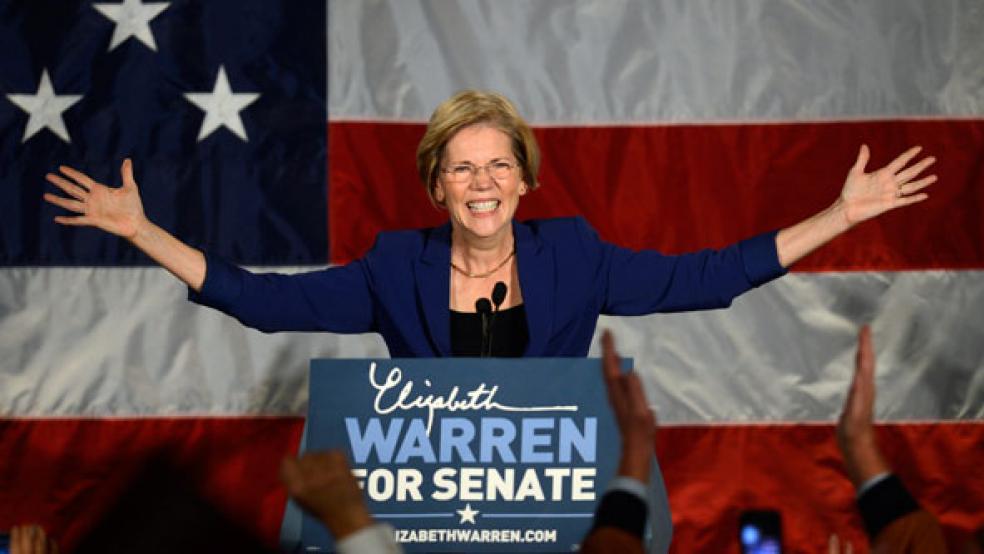To become a United States senator, you must be at least 30 years old, have nine or more years of citizenship to your name, and live in the state you wish to represent.
You also need, on average, $10.5 million.
While the first three criteria are enshrined in the Constitution, that last finding comes from a recent report by MapLight.org, a nonpartisan organization that examines federal campaign finance reports. According to MapLight, candidates who won their Senate elections in 2012 raised an average of $10,476,451 for their campaigns.
Even the cheapest Senate seat required a hefty sum to secure, with Sen. Angus King (I) winning the race for Maine's vacancy on the back of roughly $3 million in campaign contributions.
Progressive icon and Wall Street critic Sen. Elizabeth Warren (D-Mass.) raised $42.5 million, by far the highest total of any 2012 winner, in her bid to unseat Republican Scott Brown. That sum was more than twice the amount raised by all but two other victorious candidates in Senate or House races, Rep. Michele Bachmann (R-Minn.) and Speaker of the House John Boehner (R-Ohio), who raised about $26 and $22 million, respectively.
In general, House races were far cheaper than Senate contests, with victorious candidates raising an average of about $1.7 million. Rep. Eni Faleomavaega (D) won the least-expensive seat in that chamber of Congress last year. His $110,570 war chest was enough to win a non-voting seat representing American Samoa.
The 2012 figures are a significant increase from what successful candidates raised over the past decade. According to OpenSecrets, another campaign finance watchdog, victorious Senate hopefuls raised $7.2 million in 2004, or less than $9 million when adjusted for inflation.
In particular, fundraising has spiked since 2010, the year in which the Supreme Court rolled back campaign finance restrictions on corporations, unions, and other groups in the landmark Citizens United case. While that ruling opened the door to looser spending overall, it's hardly the only potential cause of the recent fundraising boom. The improving economy likely played a major role in freeing up cash for campaigns as well.
This article by Jon Terbush originally appeared at TheWeek.com.
Read more from TheWeek.com:
Will Obama Drag Down Democrats in 2014?
Why Is Paul Ryan Still Trying to Repeal ObamaCare?
How Ashley Judd Could Beat Mitch McConnell in 2014




